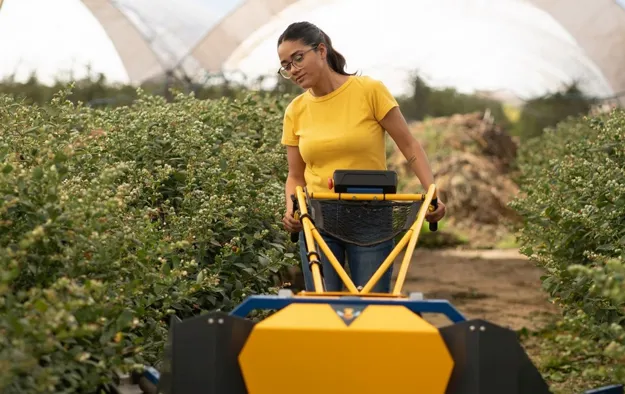Israeli company BloomX has invented mobile units that bio-mimic the job of the bee. According to Emily Speiser, VP of marketing for BloomX, honeybees, which have become the default bee for pollination in commercial agriculture aren’t as efficient as wild bees in pollinating specific fruits and vegetables like blueberries and avocados. Also, says Speiser, there aren’t enough honeybees as the world’s food needs grow.
Referring to figures from the UN’s Food and Agriculture Organization, Speiser says: “Since 1961, agricultural land has expanded by 600%. In the same time period, the number of managed honeybee hives has expanded by only 83%. So, we have a supply and demand problem.”
 Robee pollinates blueberry bushes / Photo courtesy of BloomX
Robee pollinates blueberry bushes / Photo courtesy of BloomX
That is why BloomX is combating the honeybee population crisis with robo-bees. The company, founded in 2019 in the small agricultural village of Rishpon, developed robotic tools that pollinates as efficiently as a wild bee and without the risks involved with honeybees.
Another advantage of robo-bees is that they can bypass limitations introduced by some countries on “foreign” bees. Colombia, for example, prohibits bringing in bumblebees because they are not native and can harm the local ecosystem, Speiser explains.
Source: stljewishlight.org
